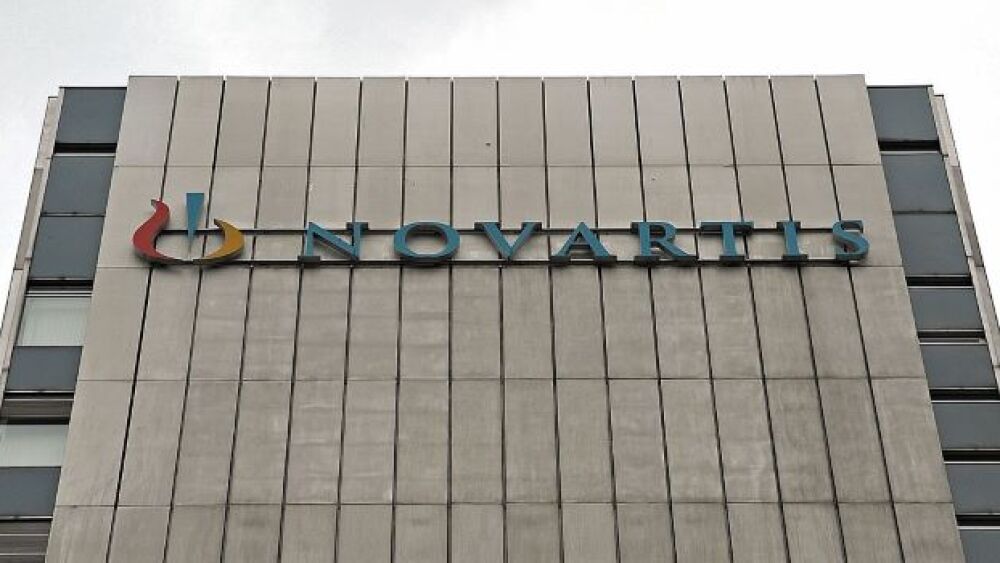In addition to patent cases, partnerships and pledging money to global tropical disease efforts, Novartis scored a win on a combo-treatment for solid tumors.
Courtesy of Harold Cunningham/Getty Images
Switzerland-based Novartis has had a very busy week, and it’s not over yet. In addition to patent cases, partnerships and pledging money to global tropical disease efforts, the company scored a win on a combo-treatment for solid tumors.
FDA Greenlights Two-Drug Combo for BRAF V600E Solid Tumors
The U.S. Food and Drug Administration granted accelerated approval to Novartis’ Tafinlar (dabrafenib) plus Mekinist (trametinib) for treatment of adults and children six years and older with unresectable or metastatic solid tumors with a BRAF V600E mutation who have progressed after previous treatment and who have no satisfactory alternative treatment options.
Because it is an accelerated approval, the company has to run confirmatory trials, or the approval could be rescinded. The combo is the first and only BRAF/MEK inhibitor approved with a tumor-agnostic indication for solid tumors with the BRAF V600E mutation. These mutations are associated with 20 different tumor types.
“The combination of dabrafenib and trametinib demonstrated meaningful efficacy in multiple BRAF-positive tumor types, including in some patients with rare cancers who have no other treatment options available,” Dr. Vivek Subbiah, M.D., associate professor of Investigational Cancer Therapeutics and center medical director of the Clinical Center for Targeted Therapy, Division of Cancer Medicine, at The University of Texas MD Anderson Cancer Center in Houston, Texas said. “Physicians should consider a BRAF test as a routine diagnostic step that could enable a new option for treating patients with many solid tumors.”
Novartis Pledges $250 Million to Fight Tropical Diseases and Malaria
The company endorsed the Kigali Declaration on neglected tropical diseases (NTDs) and pledged a five-year financial commitment of $250 million to fight NTDs and malaria with the Kigali Summit on Malaria and NTDs. This is along with the 26th Commonwealth Heads of Government (CHOGM) meeting. Novartis initially endorsed the London Declaration on NTDs in 2012, donating to global efforts to eliminate leprosy. The company committed $100 million in 2018 to fight malaria. The new investment will help to advance research and development of new therapeutics against NTDs and malaria. This includes $100 million to focus on four diseases, Chagas disease, visceral leishmaniasis, dengue fever and Cryptosporidium infection.
“Over the past decade, great progress has been made against NTDs, but there is still a lot more work to be done,” Vas Narasimhan, chief executive officer of Novartis, said. “Novartis will continue progressing our longstanding commitment to helping realize a world free of NTDs. Today, by endorsing the Kigali Declaration and pledging to invest $250 million, we aim to accelerate progress toward elimination of these diseases, which continue to cause suffering and stigma for millions of people around the globe.”
Last week, Novartis announced it was collaborating with PerkinElmer to expand newborn screening for sickle cell disease in sub-Saharan Africa. PerkinElmer and the Novartis Africa Sickle Cell Disease program will expand advocacy efforts to educate patients, caregivers and communities on how vital newborn screening and early intervention is with hydroxyurea (HU) and other SCD treatments.
Novartis and Precision Unite on Sickle Cell and Thalassemia Gene Therapies
Novartis and Precision BioSciences inked a partnership to develop a potential cure for hemoglobinopathies, including sickle cell disease and beta-thalassemia. Precision will create a custom ARCUS nuclease and conduct in vitro studies, then Novartis will take over the rest of the R&D, manufacturing and commercialization. Novartis will pay Precision $75 million upfront, but the deal includes up to $1.4 billion in potential milestones, additional research funding and tiered royalties on commercial products.
Jay Bradner, president of the Novartis Institutes for Biomedical Research (NIBR), said, “We identify here a collaborative opportunity to imagine a unique therapeutic option for patients with hemoglobinopathies, such as sickle cell disease and beta thalassemia — a potential one-time treatment administered directly to the patient that would overcome many of the hurdles present today with other therapeutic technologies.”
Novartis Loses MS Drug Patent Battle as Appeals Court Reverses Decision
Yesterday, a U.S. Court of Appeals reversed its own 2020 ruling between Novartis and China’s HEC Pharm. The dispute was over Novartis’ multiple sclerosis drug Gilenya.
The appeal focused on a specific no-loading-dose limitation in Novartis’ patent description of the drug, which the judges found to be in error. The court ruled in favor of Novartis in 2020, upholding the patient’s drug dosage regimen that prevented HEC and other generic drug companies from challenging the patent until Dec. 25, 2027. HEC filed an Abbreviated New Drug Application with the FDA with plans to produce a generic version of Gilenya before the patent expires in 2027. But the repeal cited experts claiming discrepancies in defining and interpreting the loading dose. Novartis expects to file a petition for further review of the dissolution.
“Novartis intends to vigorously defend the validity of the patent and is considering all available options, including current plans to seek review of this decision by the full CAFC [U.S. Court of Appeals for the Federal Circuit], a process which may take several months,” Novartis stated.





